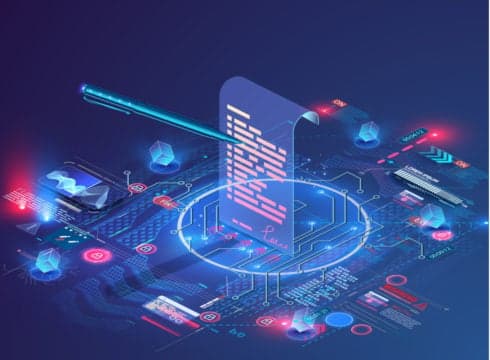Dubbed as ‘Academic BlockChain Documents’ (ABCD), the Central Board for Secondary Education (CBSE) has launched a digital repository to store student documents including results, birth certificates, character certificates, leaving and/or migration certificates, etc on blockchain
The CBSE states that it will digitise legacy records of Class 10 and 12 from 1975 onwards, and will append the same to the repository as soon as completed
The repository will be used by students, academic institutions, employers and financial institutions to verify untampered and paperless documents, and/or access as and when required
Inc42 Daily Brief
Stay Ahead With Daily News & Analysis on India’s Tech & Startup Economy
As blockchain takes initial steps towards greater adoption in India, the Central Board for Secondary Education (CBSE), in collaboration with the Centre for Blockchain Technology of National Informatics Centre (NIC) under the Ministry of Electronics and Information Technology (MeitY), has come up with a solution using Blockchain tech named as “Academic BlockChain Documents” to ensure the recording and storing of academic documents of students securely and in a tamper-proof manner.
According to CBSE officials, the technology will ensure that academic documents can be accessed online by various educational institutes for verification at the time of admission for higher studies, counselling, verification by companies for job offers, or by banks during offering loans, in a trusted and verifiable manner.
How Will The Process Work?
Currently, CBSE offers digitally signed certificates of classes 10 and 12 from 2019 to 2021. It claims to be pushing the issuance of these digital certificates of previous years up to 1975, in the coming months.
“Upon issuance of new certificates by CBSE, the digitally signed certificates will be sent to the Blockchain-based system creating an additional secure link,” said a senior CBSE official. “Digitisation of legacy records of classes 10 and 12 from 1975 onwards is in progress and will be appended to the repository as soon as completed. Thereafter, this repository is set to become one of the largest digital academic repositories in the world, the official added.
Presently, the certificate chain is managed by NIC at its data centres in Bengaluru, Pune and Jaipur.
Blockchain Sees Adoption In Govt Circles
Blockchain is a new-age technology that first hogged the limelight after Bitcoin gained traction. The technology is now being used by several sectors such as healthcare, cyber security, banking and supply chain management, among others. The central government, which has been sceptical about cryptocurrency, has lately been showing interest in adopting blockchain technology.
For instance, remote voting may be a reality by 2024 (India’s next general elections), as claimed by Chief Election Commissioner Sunil Arora in March 2021. The Election Commission of India is working with IIT Madras for using blockchain technology to enable app-based e-voting to make the process more convenient by the time of the Lok Sabha elections.
Further, in August 2021, the Indian stock market regulator – SEBI – had asked its depositories to use distributed ledger technology, popularly known as blockchain technology to record and monitor the security created as well as monitor covenants of non-convertible securities. The system will capture the process of creation of security, continuous monitoring of covenants by debenture trustees, the credit rating of the non-convertible securities by the credit rating agencies (CRA).
The states like Andhra Pradesh, Kerala, Rajasthan, Maharashtra, Karnataka, Tamil Nadu, and Telangana have been using blockchain technology to issue Covid-19 test certificates, aiming to streamlike eGov services, and set up real-time document management systems to ensure transparency.
In its report titled: “Blockchain: The India Strategy” released last year, the Indian government’s think-tank Niti Aayog advocated the use of blockchain for tracking and tracing drugs in the pharmaceutical supply chain, to improve claim verification and approval in the disbursement of fertiliser subsidies, for verification of university education certificates by recruiters and foreign universities and for management of the land transfer process.
In July, it was reported that the centre is eyeing to build a platform based on blockchain that would help government departments, PSUs, banks and investors to verify the authenticity of the information submitted by startups. The government later supported that blockchain added an additional layer of security to the certificates, to verify the status of documents by startups, for accessing different opportunities by investors, procurement entities, government departments, and stakeholders.
{{#name}}{{name}}{{/name}}{{^name}}-{{/name}}
{{#description}}{{description}}...{{/description}}{{^description}}-{{/description}}
Note: We at Inc42 take our ethics very seriously. More information about it can be found here.


